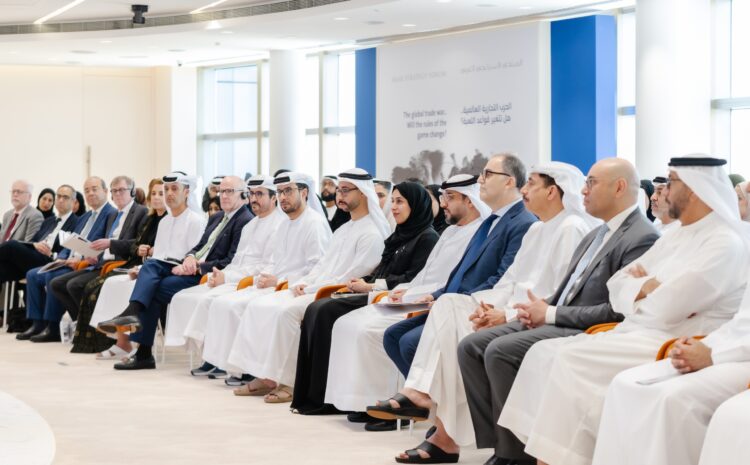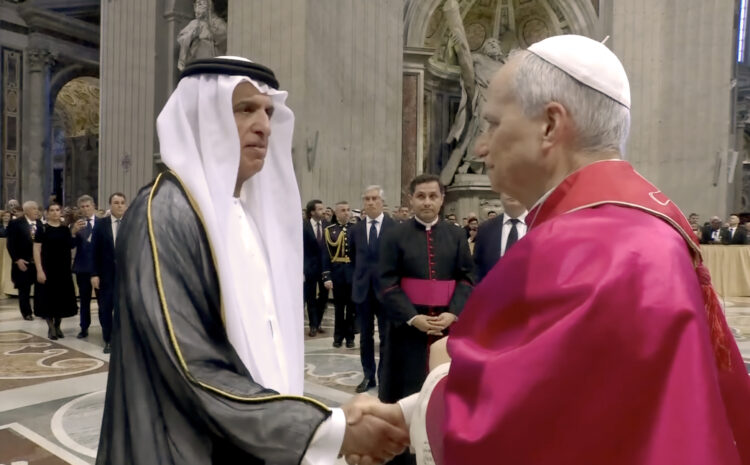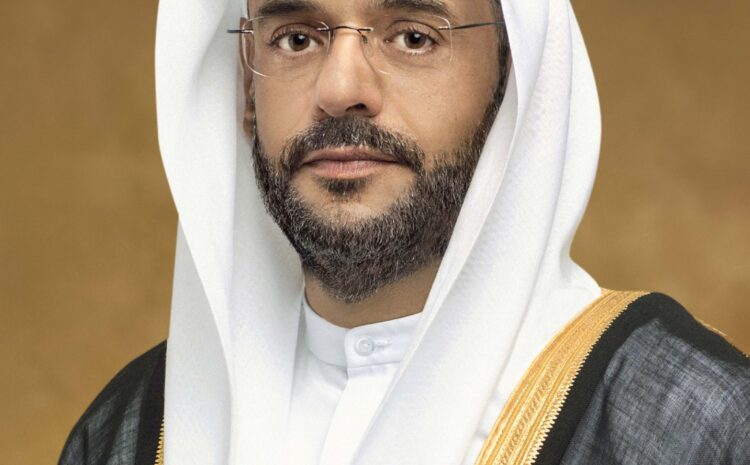
Arab Strategy Forum holds two sessions to discuss future of global economic relations, investments
DUBAI, 18th May, 2025 (WAM) — As part of its ongoing commitment to empowering decision-makers and leaders to better understand global transformations and develop future-focused visions grounded in deep analysis of international dynamics, the Arab Strategy Forum hosted two discussion sessions titled “Dubai and the Global Economy: A Map of Opportunities and Investment” and “The Global Trade War: Are the Rules of the Game Changing?”
The sessions addressed the current economic and geopolitical landscape at a time of rapidly accelerating global shifts and mounting challenges to the international economic system.
The events were attended by a distinguished group of senior leaders and decision-makers, including Hessa Buhumaid, Director-General of the Community Development Authority in Dubai; Saeed Al Eter, Director-General of The Executive Office of His Highness Sheikh Mohammed bin Rashid Al Maktoum; Essa Kazim, Governor of the Dubai International Financial Centre; Mohammad Ali Rashed Lootah, Director-General of Dubai Chambers; Hesham Abdulla Al Qassim, Vice Chairman and Managing Director of Emirates NBD; Major General Tamim Mohammed Al Muhairi, Director-General of the State Security Department in Dubai; Major General Awad Hader Al Muhairi, Deputy Director-General of the State Security Department in Dubai; Faisal bin Sulaitin, CEO of the Dubai Economic Security Center; Dr. Abdullah Busnad, Director-General of Dubai Customs; Hamed Ali, CEO of the Dubai Financial Market and Nasdaq Dubai; and Arif Amiri, CEO of the DIFC Authority. Also attending the sessions at Emirates Towers were global experts and over 100 leaders and professionals.
The first session, moderated by journalist Cyba Audi Agha and featuring Sultan bin Sulayem, Chairman and CEO of DP World, explored how Dubai has developed a flexible economic model.
Bin Sulayem stated that the current geopolitical shifts prove that readiness and resilient economic models determine a country’s ability to thrive.
“The real challenge is no longer just surviving crises—but leveraging them to build a more stable and influential role in global economic chains.”
He emphasised that ensuring the continuity of trade is no longer just a technical or logistical matter but a strategic imperative tied directly to market security and national economic stability.
Bin Sulayem highlighted the importance of long-term investments in infrastructure and supply chains, noting:
“Thanks to the vision of His Highness Sheikh Mohammed bin Rashid Al Maktoum, Vice President and Prime Minister of the UAE and Ruler of Dubai, we realised early on that the key to future success lies in rapid market access. We invested in transport, connectivity, and technology to strengthen the ability of ports and free zones to respond to volatile global demand.”
He revealed that DP World handled more than 88 million TEUs in 2024, representing US$3.7 trillion in goods annually, or more than US$400 million per hour, reflecting the group’s global impact on trade stability and supply chain efficiency.
The group’s infrastructure spans over 250 shipping offices, covering more than 90 percent of global trade routes, enabling it to deliver fully integrated logistics solutions in a complex and volatile global economy.
Addressing regional competition, Bin Sulayem noted that the increase in trade corridors and infrastructure doesn’t weaken any single player but strengthens the global market as a whole:
“Dubai is now a necessity for trade, not a choice. The more alternatives that emerge in the region, the greater the need for coordination and trust exchange… The global system requires integrated—not fragmented—networks. This calls for enhanced cooperation tools, not just competition.”
The second session featured Carla Sands, former U.S. Ambassador to Denmark and current Vice President of the Center for Energy and Environment at the America First Policy Institute, alongside Dr. Victor Gao, Vice President of the Center for China and Globalisation. The discussion was moderated by journalist Ryan Chilcote and tackled fundamental questions about the future of the global trade system amid accelerating geopolitical transformations and the decline of traditional globalisation frameworks.
Ambassador Sands stated that the world is at a pivotal crossroads, one that is reshaping the rules of international economic relations. “The challenge today is not just competition among global powers, but how to safeguard the stability of the global system as trade tensions rise and old balances unravel,” she said.
“What we are witnessing—the retreat of conventional globalisation—demands the emergence of fairer models for mutual interest. We need systems that value transparency and foster balance, not structures run from closed circles or dominated solely by power dynamics.”
Sands emphasised that successful alliances in the future will not be based solely on geography, but on shared values guiding collaborative action. “Global economic relations will no longer be dictated purely by power dynamics,” she noted. “They will be redefined by those who hold a vision grounded in partnership, respect for sovereignty, and a long-term commitment to stability.”
Dr. Victor Gao echoed this forward-looking perspective, stating that the world is moving rapidly toward a new era of economic multipolarity—driven by emerging blocs seeking to decentralise global economic decision-making. He described the current transformations as a historic opportunity to redistribute roles and make room for cooperation-based models that reject dependency.
Gao argued that the future of the global economy will not be shaped by governments alone, but at the intersection of technology, cross-border capital, and transcontinental supply chains. “The question is no longer who controls the markets,” he said, “but who understands their rhythm—and can adapt swiftly in an age of rapid decisions and constant disruptions.”
He stressed that reforming global economic institutions has become more urgent than ever. “The IMF, the WTO, the World Bank… these institutions must reclaim their role as neutral balancers—not political instruments—and evolve in step with the changes, rather than remain on the sidelines.”
Ambassador Carla Sands is recognised as an influential figure in U.S. policy and economic diplomacy. She currently serves as Vice President of the Center for Energy and Environment at the America First Policy Institute. Her distinguished career includes senior sovereign positions, most notably serving as the U.S. Ambassador to Denmark, Greenland, and the Faroe Islands from 2017 to 2021. She was awarded the Distinguished Public Service Medal by the U.S. Department of Defense and holds memberships in several diplomatic and security forums.
Dr. Victor Gao, Vice President of the Center for China and Globalisation, is one of China’s most prominent experts in development and global economic policy. He has extensive experience in government, diplomacy, energy, and investment, having held senior positions in major international institutions such as Morgan Stanley and Sinopec. He previously served as translator and advisor to the late Chinese President Deng Xiaoping. Holding a doctorate in law from Yale University, Dr. Gao is regarded as a global authority on the interplay between geopolitical shifts and economic power dynamics.
The Forum seeks to provide future-focused insight and a deeper understanding of key political and economic issues at the local, Arab, and international levels. It employs two scientific methodologies: the strategic foresight approach and the strategic future planning approach, in addition to drawing on historical evidence and analyzing current developments to anticipate political and economic events in the future.
Launched in 2001 under the patronage of His Highness Sheikh Mohammed bin Rashid Al Maktoum, Vice President and Prime Minister of the UAE and Ruler of Dubai, the Arab Strategy Forum focuses on future foresight and a deeper understanding of key geopolitical and economic issues affecting the Arab world and the international community. It brings together a select group of global leaders and thinkers to discuss the most pressing issues in this regard.
The Forum serves as a networking platform composed of sessions that contribute to a better understanding of future geopolitical and economic trends in the region and globally, with the ultimate aim of building a better world.






